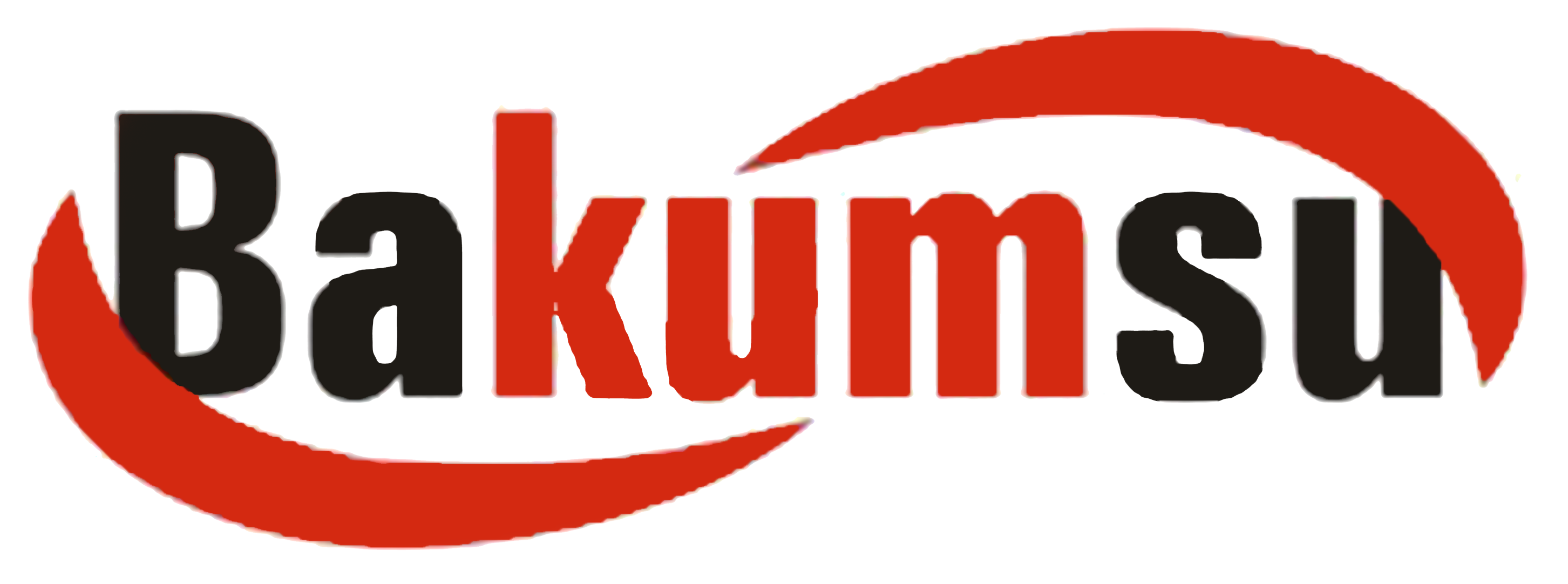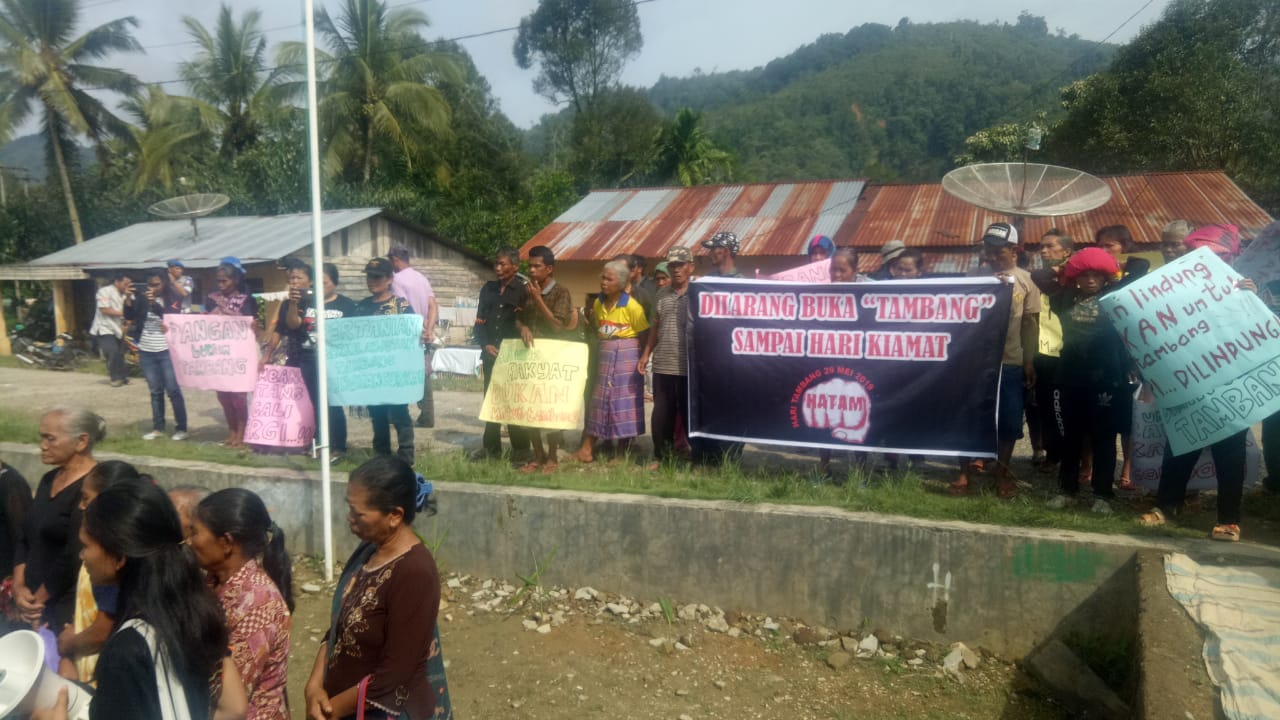The International Finance Corporation’s independent watchdog has accepted a formal complaint concerning a planned zinc mine in North Sumatra, Indonesia, that will create millions of cubic meters of toxic tailings in one of the world’s highest earthquake risk zones. The watchdog, the Compliance Advisor Ombudsman, has accepted the complaint because an IFC client, Postal Savings Bank of China, loaned money to the mine’s lead developer, in apparent contravention of the World Bank Group member’s human rights and environmental standards.
The mine’s developer is Dairi Prima Minerals (DPM) which is now 51% owned by China Nonferrous Metal Industry’s Foreign Engineering and Construction Co., Ltd. (NFC) and 49% owned by Indonesia’s Bumi Resources Minerals.
Residents of two villages near the mine filed the complaint in October, with the help of the U.S. organization Inclusive Development International and BAKUMSU, a legal rights organization based in Medan, the capital of North Sumatra. The communities are calling for the IFC and Postal Savings Bank to use their leverage to get proper information about the mine, which is in the early stages of development.
“We were not consulted about this mine. We have not been told what this mine will be doing and what impacts it will have. “At very least, we want dialogue. We want to have proper information in front of us, and we want that information reviewed by international experts” said Mr. Sugianto Hasugian, a resident of Bongakaras village involved in the complaint.
“If we are going to be potentially living around or down from a potential disaster, we deserve to be consulted and informed. “This mine could produce millions of cubic meters of toxic waste. We want know what they will do with it. We know tailings dams leak and can collapse. We know the DPM mine is at the top of a stream system and we are down from it. We don’t want to live under constant threat of tailings dam collapse” said Ms. Rainim Purba, a resident of Pandiangan village involved in the complaint.
“Dairi has a very high earthquake and flood risk. So why is this project being allowed?? Why are banks providing money to this company?? It is they who will be responsible for the disaster that may kill us in the future” said Pak Mangatur Pardamean Lumbantoruan, a resident from Sumbari village involved in the complaint.
“We are Batak Toba and Pak Pak people. We are farmers. We have been farming our land for generations. We produce crops that feed ourselves and support the wider economy. We do not want our lands and waterways poisoned. A mine is only for a short time, then leaves a huge mess. That is not the sort of development we want for our area” said Ms. Rainim Purba, a resident of Pandiangan.
YDPK, a local NGO working in the Parongil area, where the mine is proposed have been trying to assist the communities get information. “We have requested information from the Ministry of Minerals and Energy but they didn’t provide it. We then requested the national information commission to access and provide information. They too have not done so” said Diaconess Sarah Naibaho, Executive Director of YDPK.
“People are in the dark as to the possible impacts of this mine – and that in itself is an abuse of rights” she said.
Ridwan Samosir, Executive Director of PETRASA said “We too have been trying to support communities for sustainable agriculture – but the DPM mine potentially threatens that work we and communities have done.
“DPM and government are not being straightforward in providing information. We know the mine is in an area of high risk. Where is the waste management plan?” he said.
BAKUMSU, a legal aid organization based in Medan, the capital of North Sumatra, Medan have been asked to support the local communities. Manambus Pasaribu, the Executive Secretary, said “we have been doing a legal analysis if the mine. There are a number of issues. We think the mine may not fully comply with Indonesian laws”.
“We have seen letters between a Parongil resident and the Ministry of Environment and Forestry’s AMDAL section saying that while DPM produced an AMDAL that was approved in 2005, they now need new environmental approval. In January 2019 DPM were informed of this. In March 2020 they still had not obtained new environmental approval”.
“We also know that the area is high disaster risk. Indonesian law says projects like mining in areas like this need to have risk analysis and risk management plans done”. We have asked government for details on this but we cannot find any evidence to suggest the proper risk analysis has been done. We cannot find evidence that risk management plans have been done or approved”.
“DPM have built an explosives storage facility within 50 meters of houses in a village. This seems in contravention to regulations. We know from media reports that China Nonferrous Metal Industry’s Foreign Engineering and Construction Co., Ltd. (NFC) – which is now the majority shareholder and operator of the mine – had an explosion at a explosives storage facility in Zambia in 2005 that killed 46 people.”
Mr. Merah Johansyah, National Cooordinator of JATAM, a national network of NGOs and Community organization that concerns on human rights and environment issues in the mining and oil and gas industry group dedicated to minimizing the detrimental impacts of mining in Indonesia said: “The problem is that mines like this create a lot of toxic waste – especially where there are high levels of lead and other heavy metals – as is the case with the proposed DPM mine.” He added, “Indonesia does not have a solid regulatory framework nor the capacity to ensure mining disasters don’t occur. Putting the DPM mine in such a high disaster risk area is just insane.
“Anyone putting money into this project should think again” he said.
“NFC has been operating around the world. Huge environmental and human rights issues have been reported in countries like Zambia, Congo, Mongolia, Vietnam, Myanmar. Bumi resources has also been creating havoc with coal mining in Indonesia. What we have is a perfect storm of low regulation, companies with a poor track record, and a very high seismic and flood risk”.
“The communities have shown great courage in bringing this complaint in an effort to protect the environment and their way of life. The Compliance Advisor Ombudsman’s acceptance of the complaint is an important step in avoiding that,” said David Pred, Executive Director of Inclusive Development international, a US-based NGO that has been assisting communities and local NGOs with understanding the finance chain behind DPM and the international experiences of mining in high risk areas. “What is being proposed is the creation of tailings storage facilities in an extremely unstable and risk prone area. People living downstream from the mine site will be forever living in fear of dam collapse and water contamination. Dam collapses in other areas of the world – even without such high earthquake risk – have destroyed villages, killed hundreds of people and poisoned the environment for generations.”
The IFC made a $300 million equity investment in Postal Savings Bank in 2015, after which the bank provided several lines of credit to China Nonferrous Metal Industry’s Foreign Engineering and Construction Co., Ltd. (NFC) and its parent, the China Nonferrous Metals Mining Group. The IFC has increasingly outsourced billions of dollars to commercial banks around the world, which have gone on to finance nearly 150 socially and environmentally harmful projects, according to research led by Inclusive Development International.
This is the first complaint involving a Chinese financial institution accepted by the Compliance Advisor Ombudsman. The complainants will have the option of pursuing dispute resolution with the parties or calling for an investigation of the IFC’s compliance with its policies.
The zinc mine is being developed by Dairi Prima Mineral, an Indonesian joint venture between the Beijing-based mining conglomerate China Nonferrous Metal Industry’s Foreign Engineering and Construction Co., Ltd. (NFC) and Bumi Resources Minerals, a subsidiary of the Indonesian coal-mining giant Bumi Resources. The companies are seeking to build an underground mine to commercially extract zinc, lead and silver ore.
The developers will likely construct a tailings facility near the mining site, where toxic waste will be stored. If not properly built and maintained, tailings ponds can fail, releasing toxic waste into the environment. In Brazil, two tailings dams collapsed in 2015 and 2019, releasing waves of toxic sludge that killed nearly 300 people.
Inclusive Development International also commissioned a report on the seismic risks posed by the project. Dr. Richard Meehan of Stanford University concluded that the “Dairi Mine is located in one of the highest risk areas in the world.” near the Sumatra subduction megathrust which produced in 2004 and 2005 earthquakes of magnitude 9 and 8+ respectively. The minesite is also only 15 kilometers from the Great Sumatra fault which produces long duration or repeated earthquakes, notorious for destroying civil structures like tailings dams. “This repetition or longevity of shaking can completely destroy structures including dams that would otherwise survive a short-duration quake with only partial collapse” This, combined with the area’s very heavy annual rainfall, led Dr. Meehan to predict that “within a few decades after the ‘closure’ of the deposit, an earthquake-induced sudden failure of the tailings dam would send “a wave of liquid mud downstream to the north.”
In 2005, Dairi Prima Mineral conducted an environmental impact assessment of the proposed mine. Since then, however, mine plans have changed and a significantly larger mine has been proposed. In 2019, DPM has been notified that it required new environmental approval. Despite that new approval not being granted, the mine proceeds with construction. Residents have expressed concern about potential dangers to animals and humans living near the mine. Local community members say they have not been appropriately consulted about the project. They fear the mine could pollute water sources, and harm soil and crops.
On October 31, 2019, the Investor Mining and Tailings Safety Initiative announced that its 96 members, mostly institutional investors and pension funds, would consider divesting from mining firms that failed to disclose their tailings dams – and how they are mitigating risk at these facilities. Bumi Resources Minerals failed to respond to requests for disclosure.
Besides the threat to land and livelihood, all the organizations concerned that Indonesians opposing destructive corporate projects have faced escalating violence. Three environmental human rights defenders have been killed in North Sumatra since October 2019.
“As this case goes forward, the Indonesian government and the company must prioritize the safety and wellbeing of community members and the activists who support them,” Pred said.
“The citizens’ complaints to CAO have also sent to the Chinese government so that the Chinese Ministry of Commerce can be aware of the complaint, and ask the Chinese institutions can address the concerns of the communities” said Manambus Pasaribu. “They probably do not know the risks present in the local area, so we want to talk with them”.

